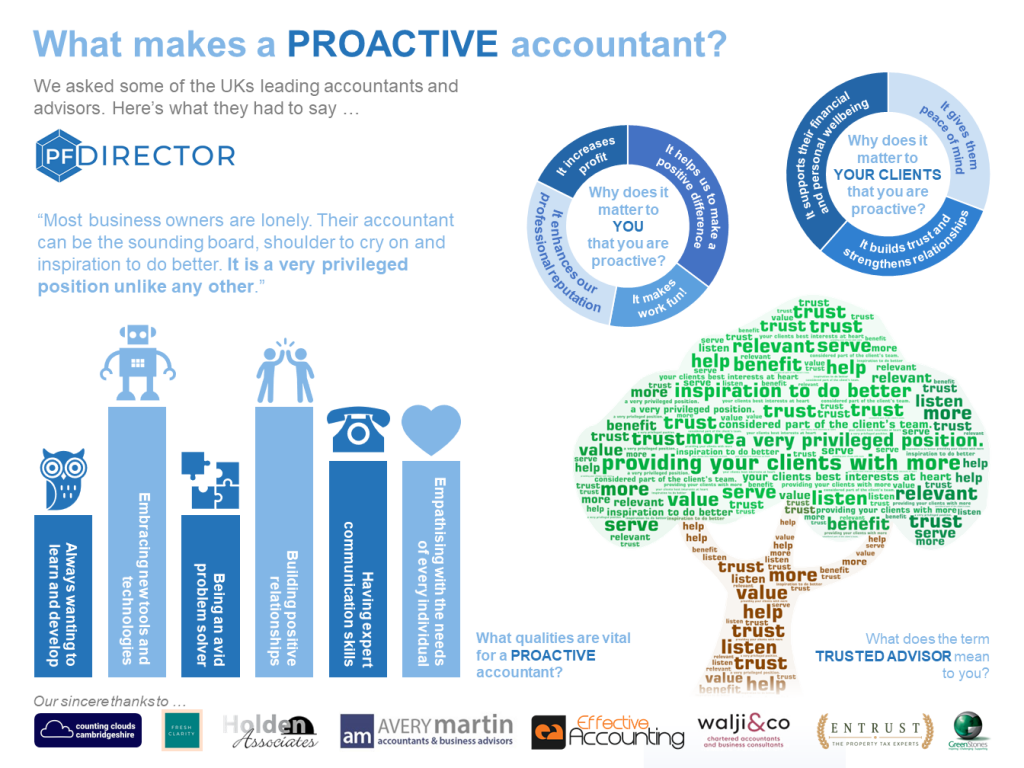
What is the difference between those businesses we stand by through thick and thin, and those we turn our backs on and walk away? Mike Corcoran shared some food for thought at the online launch of PF Director, 25th March 2020.
Think of a brand which you really love – don’t over think it – just whatever comes straight to mind. What is it about them that you love so much?
I often ask people this question, and I’m always curious to see what they say. People don’t love Disney just because they make cartoons, but because they can provide escapism and a sprinkling of magic on a rainy day. People don’t love Tesla just because they make electric cars, but because they do so with a childlike sense of ambition, imagination and fun. And people don’t love the NHS just because they nurse people back to health, but because they are there for us, no matter who we are, and no matter what we need, through thick and thin.
The reasons why we love (or hate) brands and the organisations behind them, rarely have too much to do with their core products or services – we take those for granted, it’s everything else that we base our value judgements on.
How often do you pause to reflect on the reasons why your customers might love (or hate) your brand? How much time, energy and resource do you commit to giving them good reason to love you?
We all do a lot more than our job titles would have us believe.
Teachers are simultaneously social workers, psychologists, actors, entertainers, mentors and referees. Nurses are simultaneously, carers, friends, managers, administrators, counsellors and super heroes. And even at the supermarket checkout, the friendly conversation the assistant has with an elderly shopper is often far more important than the items they pack into their bag.
The everything else we associate with our favourite brands doesn’t happen by chance. It is the skills, knowledge, and personal attributes of the people behind those brands which make it possible, and if we want people to love our brand too, our true job descriptions are likely a fair bit longer than we may have ever appreciated.
What are all the competences your organisation needs if your customers are to love you? How much time, energy and resource do you commit to developing them?
A nice example of this can be found in a famous study of tipping culture in the USA, undertaken by David Strohmetz.1 Strohmetz was interested in the relationship between the little mints that waiters and waitresses left alongside the bill for their customers at the end of the meal, and the size of the resulting tip. Independent of the quality of service provided during the overall dining experience, Strohmetz found that:
- One mint with the bill increased the average tip by 3%
- Two mints with the bill and the average tip didn’t double, but by rose by 14.1% – not a bad investment.
- And perhaps most interestingly, one mint – followed by walking away – followed by turning around and saying ‘for you nice people here’s an extra mint’ – led to a 21% increase in the average tip.
The key point here is that customer satisfaction (and hence the size of their tip) depended on something over-and-above the quality of their food. It depended on the perceived kindness of their host, the personalisation of the service, and the unexpectedness of the gesture. It depended not only on what was done, but how it was done.
What are the simple things you do to improve your customers perceptions of you and your brand? How do you do them? Where could you do things better?
Alongside Gareth Salomon, at PF Director we have turned these general observations into specific considerations of all the things accountants must do over-and-above the accounts.2
This can be a real conundrum in accountancy, where compliance can be seen as king – but remember, compliance is there to raise the floor, not to lower the ceiling! Your customers won’t love you because your compliant, they will simply expect it of you. It’s your ticket to enter the race, not the reason why you’ll win. Furthermore, if you focus exclusively on compliance you risk focusing only on maintaining standards rather than improving them, and risk focusing only on the figures and not the people behind them – and people are not data points.
We reached out to leading accountants across the UK, and asked them ‘what makes a proactive accountant?’. Everything they suggested was over-and-above doing the accounts.

Most frequently, they told us proactive accountants need to:
- Always want to learn and develop;
- Be willing to embrace new tools and technologies;
- Be avid problem solvers;
- Build strong and positive relationships with customers and clients;
- Have expert communication skills, and;
- Empathise with the needs of every individual they support.
Not only that, but by doing these things consistently (with practices deeply embedded into organisational culture, not consciously undertaken but simply part of ‘the way things are done’), they have seen improvements to their professional reputations, the satisfaction of their clients and customers, and their profits!
So, if we want to make sure our customers will stand by us through thick and thin, what should we ask ourselves?
- What are the things that will make our customers love us?
- What are the competences we need if we are to do these things?
- How can we translate these things into the simple actions we carry out day-by-day?
- How can we make sure these actions become an organic part of ‘the way we do things’?
Over-and-above-ness might seem like something superfluous, but actually it’s the secret to our success.
- Strohmetz, D. B., Rind, B., Fisher, R., & Lynn, M. (2002). Sweetening the till: The use of candy to increase restaurant tipping [Electronic version]. Retrieved 1 April 2020, from Cornell University, School of Hospitality Administration site: http://scholarship.sha.cornell.edu/articles/130
- We provided some simple examples in our blog post ’50 great ways to attract high quality clients ‘ here.

Mike Corcoran helps organisations to make things simpler, more effective, and more impactful.
He works with businesses of all shapes and sizes, developing strategies, managing projects, undertaking research, and training and developing teams. He has worked with clients across the UK, Europe, Asia, Australia and North America and engaged with over 100,000 individuals through conferences, festivals, public lectures and workshops.
Mike works with PF Director as an Associate Consultant.
